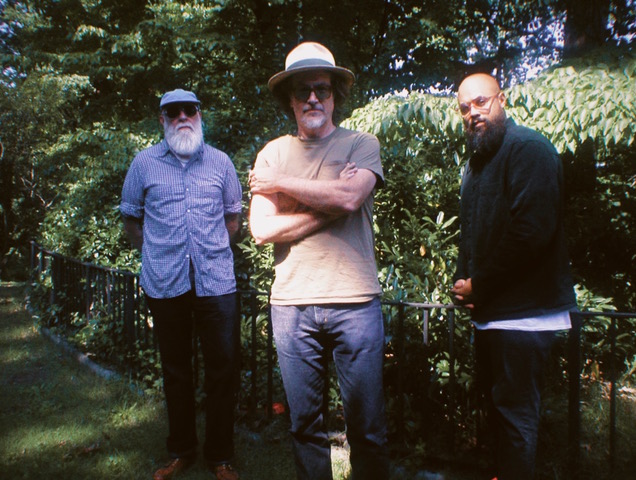Pitchfork Review: This Is BASIC

7.6
The Philadelphia trio pays tribute to a baffling 1984 LP of programmed drums and indulgent guitar recorded by an obstinate Lou Reed collaborator. They’re not so much imitators as acolytes.
Few people understood Basic when it came out and even fewer liked it. By 1984, Robert Quine was already legendary for his guitar work on Richard Hell and the Voidoids’ Blank Generation and Lydia Lunch’s Queen of Siam. He had recorded several albums with Lou Reed, who he adored and hated in equal measure, and with whom he constantly clashed. The notoriously contentious Quine had done his time in the New York City underground and was sick of being sidelined by its outsized personalities. He decided to join up with Reed’s drummer Fred Maher and create a record exactly how he liked: a bizarre mix of programmed drums, ambient drift, and indulgent guitar explorations. These sounds were outré at the time, but they quickly became dated. Quine didn’t care. “On Basic, the drums are too loud and this and that but that’s the way I wanted it,” he said in 1997. “If people don’t appreciate the damn thing, I have no interest in banging my head against the wall.”
According to Philadelphia guitarist Chris Forsyth, everybody’s gotten it wrong. He places Quine in the company of Miles Davis, Brian Eno, and Joni Mitchell and compares Basic to their landmark albums. Quine and Maher’s overlooked record has influenced Forsyth’s music for years, most obviously on the 20-minute guitar workout “Techno Top” from 2019’s All Time Present. But he wasn’t as alone as he thought—a resurgence of interest in Quine’s work was underway, and he was thrilled to discover that his Solar Motel Band guitarist Nick Millevoi was also a fan. During the pandemic lockdowns, Forsyth and Millevoi got together with a drum machine, using Basic as a conceptual starting point for dual-guitar jams. They quickly discovered that the collaboration made sense even to people who didn’t know about Robert Quine. And so they recruited a percussionist, Natural Information Society’s Mikel Patrick Avery, and started a band. In honor of their foundational text, they called it BASIC.
Here are the basic elements of a This is BASIC song: polyrhythmic drum programming a bit too high in the mix, like Quine would’ve done; Avery’s percussion adding a steady groove; Millevoi’s thundering baritone guitar; and Forsyth’s lead lines ringing out over top. When they play live, Avery sits behind a bass drum, cowbell, and shaker, with two guitarists flanking him. Everyone can always see each other; this friendly surveillance is necessary for the band’s semi-improv. On “For Stars of the Air,” the album’s sprawling, nine-minute opener, Forsyth adds chiming harmonics over the drum machine’s jittery hi-hat until Millevoi steps in with shuddering waves of baritone, allowing Forsyth to move along to an intricate, flanged-out solo. Only after this interplay is established does Avery complicate the beat, propelling the group forward in double time. Once any two players lock into a pattern, the third is free to roam until he finds a new fixation, and so each track can change direction with a nod or a reciprocal glance: We’ve got this, go your own way.
Of course, BASIC are more than Basic. They mine from other ’80s acts too, including the Durutti Column’s pristine chorus-pedal shimmer on “Positive Halfway” and the Clean’s upbeat jangle on “Nerve Time.” But structurally, this is modern stuff: Like a less shambolic version of 75 Dollar Bill or a more shambolic version of the Bill Orcutt Guitar Quartet, the band repeats simple parts with such insistence and drive that they turn minimalism into maximalism. On “New Auspicious,” Forsyth plays the same eight-note figure again and again over Millevoi’s galloping rhythm guitar. Then he decides to join the galloping himself. These two sections, with slight variations, alternate to form the whole of the song, and this repetition turns ecstatic exactly because it becomes so expected.
Sometimes the desire to follow Quine, a rather myopic muse, leads BASIC into trouble. “Last Resort of the Gambling Man” aims for the ambient lull of Basic’s “Dark Place” but ends up listless instead. When Forsyth piles on effects like Quine does, as in the wild wah-wah of “Versatile Switch,” he risks sounding tasteless, too. But these are faults that BASIC are glad to share with their namesake, proof that they truly embrace its sound. For Basic’s devoted fan base, This Is BASIC is evidence, finally, of the album’s enduring influence. It took 40 years but people are beginning to appreciate the damn thing.